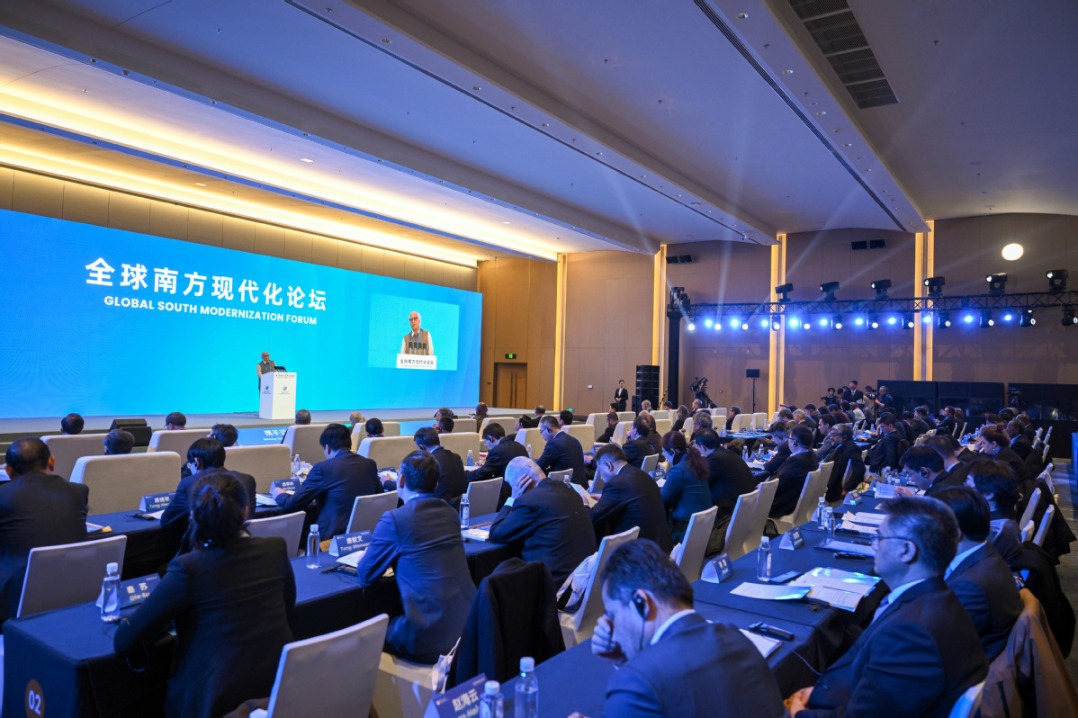New rules intended to prevent sexual abuse

Next year, China will begin implementing new adoption rules that seek to prevent the sexual abuse of children in foster families.
The move comes after the National People's Congress, the top legislative body, gave the green light to the country's first Civil Code.
The new adoption terms, spelled out in the code's family and marriage section, will prompt several changes to adoption eligibility.
Noticeably, the code raises thresholds for single adopters and former offenders, which is regarded as part of lawmakers' broader efforts to bolster protection for young children susceptible to exploitation and abuse.
The current law only allows adoption by childless citizens age 30 and older, who must demonstrate child-raising abilities.
They must also be free of medical conditions that would make them unfit to adopt, such as an infectious disease or a serious mental issue.
To minimize the risk of sexual abuse, the code will disqualify single people from adopting children if they are not significantly older than the adoptee.
Under the new rules, single adopters should be at least 40 years older than adoptees of the opposite sex.
Former offenders will be barred from adopting if their previous actions would pose a risk to a child's development, the rules said.
Yuan Ningning, a researcher of laws related to children at China University of Political Science and Law in Beijing, said the new restrictions are necessary because of the high rate of reoffending among those who abuse children.
Even if they never repeat the mistakes, "former child abusers tend to lack the capabilities and correct mentality to raise a kid", he said.
The code has also strengthened oversight of potential offenses by allowing civil affairs authorities to track and evaluate foster families, including making return visits to monitor a child's development.
There are no such restrictions in the existing adoption law, which was promulgated in 1991 and last amended more than two decades ago.
When he explained the new arrangements to the NPC on May 22, Wang Chen, vice-chairman of the NPC Standing Committee, said the moves will help to "further strengthen the protection of adoptees' legal rights".
The new rules come after a host of adoption-related abuses angered the public and raised concerns that offenders could use relationships with foster children as a cover to commit crimes.
One recent controversial case involved an 18-year-old woman. Under the pseudonym Xingxing, she used social media platforms to accuse a well-known Beijing lawyer of long-term sexual abuse.
At age 14, Xingxing was sent by her biological mother to live with the man in Beijing through a private adoption arrangement.
She claims that she was repeatedly raped over the course of several years and held in the man's home against her will. The case is being investigated by police.
Sometimes, such informal arrangements occur in China, where official adoption is strictly regulated and there is a tradition of people adopting younger relatives.
Zhu Jieping, founder of the Tai KunLyu Law Firm in Sichuan province, said the practice is more common in rural areas, where "legal consciousness" is relatively low.
"Formal adoption requires the adopters to hand in sheaves of paperwork, including marriage certificates, household registration papers and proof of childlessness," he said. "The procedures are daunting for impoverished adopters in rural areas."
Zhu suggested neighborhood authorities should ramp up monitoring of such arrangements and called for punishments for misconduct.
Yuan said the new law on the protection of minors, which is being drafted, seeks to fix the loopholes related to informal adoption.
If it is passed, judges will treat these informal arrangements as "commissioned care", meaning that if things go awry, both the biological and foster parents will be held accountable.
"We also need to strengthen public legal literacy," Yuan said. "Many parents involved in private adoptions do not know that they may have breached the law by accepting money from adopters. That can be seen as human trafficking."
Today's Top News
- China, US hold maritime safety talks in Hawaii as Beijing reiterates warnings on sovereignty
- China sends letter to UN over Japanese PM's remarks on Taiwan
- Chinese, Uzbek FMs hold second strategic dialogue
- G20 an opportunity to strengthen Sino-EU ties
- China, Africa foster shared food security
- Japan urged to take practical steps to honor its commitments to China






























